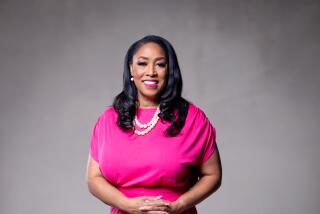BURBANK : Agency Paved Way for Helping Families Cope
- Share via
In 1953, when Evelyn Briggs founded the Family Service Agency in Burbank, she had a hard time convincing city officials there was a need for a publicly funded agency to handle domestic problems.
Back then, Burbank was a booming suburb with numerous defense-related factories founded during World War II. The city had the image of a vibrant, prosperous part of the Southern California dream.
Also at that time, it was rare for counseling and other mental health services to be accepted as part of a city’s mandate. “Mental health as it is today started with the community mental health movement in the late 1960s,” said the agency’s current executive director, Ariel Kelly.
Tomorrow, the 40th anniversary of the Family Service Agency will be celebrated from 2 to 4 p.m. at Trevor Hall of the First United Methodist Church in Burbank.
Briggs, through her duties as a child welfare and attendance worker for the Burbank Unified School District in the 1950s, knew there was a darker and little-known side to the city.
There were parents who did not know how to deal with their children except through violence. There were single-parent families struggling to get by, and a growing number of what are now called latchkey children.
And there was abject poverty. Rats ran through some of the houses she visited.
“I went to the mayor,” said Briggs, to say that the city should be working to alleviate these conditions.
“He said, ‘We don’t need anything like that. Our community is fine,’ ” she said. “He didn’t want to give us any money. I said, ‘Oh yes, but you don’t know the house calls I’m making.’ ”
One of Briggs’ earliest programs was counseling parents to teach them better child-rearing techniques.
The agency began as a branch of the Assistance League of Hollywood, with help from the Burbank school district, a women’s charity group and the juvenile bureau of the Burbank Police Department. It did not become a free-standing agency until 1957.
Currently, the agency helps about 600 people a month. Some of the programs it offers are court-ordered counseling for wife batterers, a peer counseling program for senior citizens, bereavement support groups for widows and widowers, and self-esteem groups for older women.
The agency also offers help for abused women and their children, and to senior citizens living alone.
The agency just received a grant to work with children having trouble in school and their families, Kelly said.
More to Read
Sign up for Essential California
The most important California stories and recommendations in your inbox every morning.
You may occasionally receive promotional content from the Los Angeles Times.













